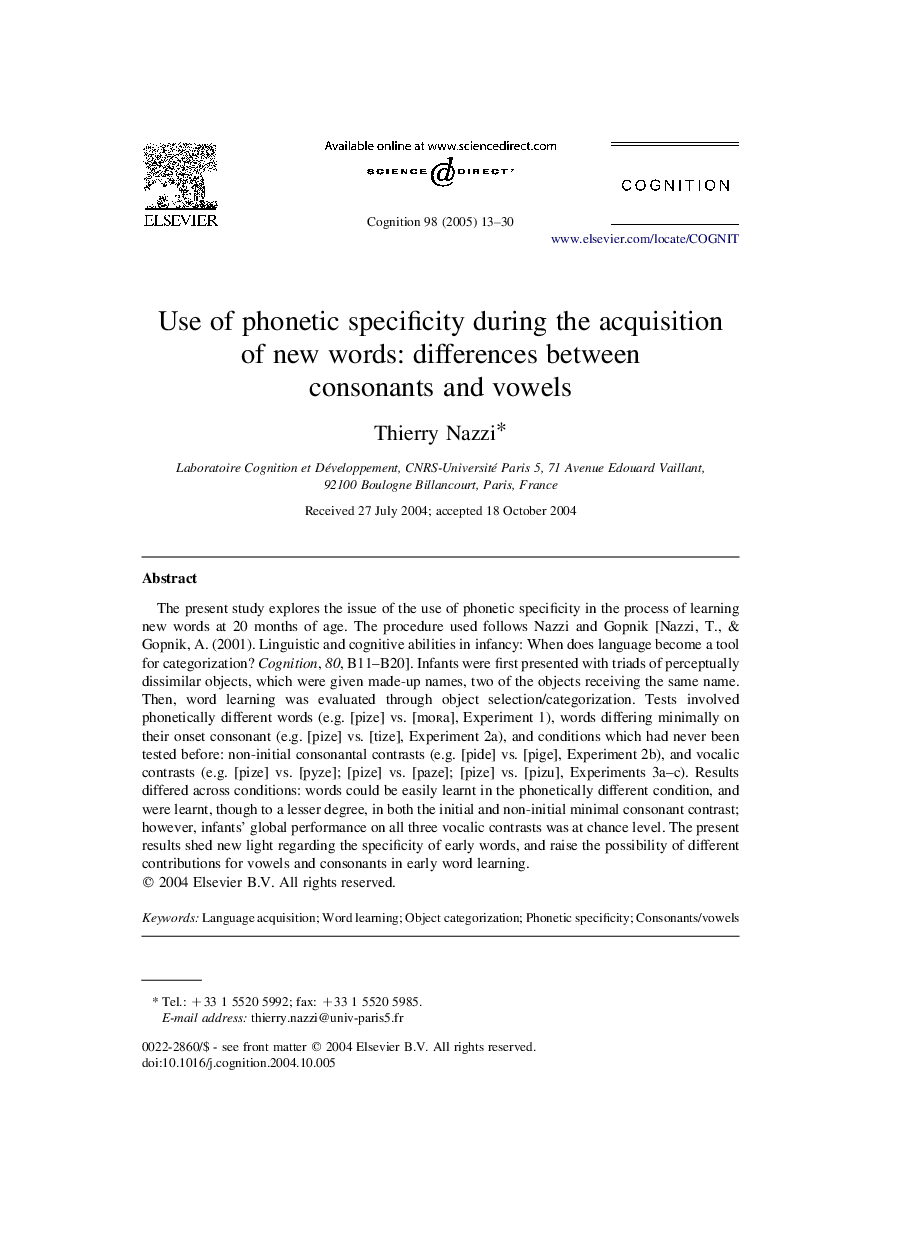| کد مقاله | کد نشریه | سال انتشار | مقاله انگلیسی | نسخه تمام متن |
|---|---|---|---|---|
| 10458043 | 921968 | 2005 | 18 صفحه PDF | دانلود رایگان |
عنوان انگلیسی مقاله ISI
Use of phonetic specificity during the acquisition of new words: differences between consonants and vowels
دانلود مقاله + سفارش ترجمه
دانلود مقاله ISI انگلیسی
رایگان برای ایرانیان
کلمات کلیدی
موضوعات مرتبط
علوم زیستی و بیوفناوری
علم عصب شناسی
علوم اعصاب شناختی
پیش نمایش صفحه اول مقاله

چکیده انگلیسی
The present study explores the issue of the use of phonetic specificity in the process of learning new words at 20 months of age. The procedure used follows Nazzi and Gopnik [Nazzi, T., & Gopnik, A. (2001). Linguistic and cognitive abilities in infancy: When does language become a tool for categorization? Cognition, 80, B11-B20]. Infants were first presented with triads of perceptually dissimilar objects, which were given made-up names, two of the objects receiving the same name. Then, word learning was evaluated through object selection/categorization. Tests involved phonetically different words (e.g. [pize] vs. [mora], Experiment 1), words differing minimally on their onset consonant (e.g. [pize] vs. [tize], Experiment 2a), and conditions which had never been tested before: non-initial consonantal contrasts (e.g. [pide] vs. [pige], Experiment 2b), and vocalic contrasts (e.g. [pize] vs. [pyze]; [pize] vs. [paze]; [pize] vs. [pizu], Experiments 3a-c). Results differed across conditions: words could be easily learnt in the phonetically different condition, and were learnt, though to a lesser degree, in both the initial and non-initial minimal consonant contrast; however, infants' global performance on all three vocalic contrasts was at chance level. The present results shed new light regarding the specificity of early words, and raise the possibility of different contributions for vowels and consonants in early word learning.
ناشر
Database: Elsevier - ScienceDirect (ساینس دایرکت)
Journal: Cognition - Volume 98, Issue 1, November 2005, Pages 13-30
Journal: Cognition - Volume 98, Issue 1, November 2005, Pages 13-30
نویسندگان
Thierry Nazzi,